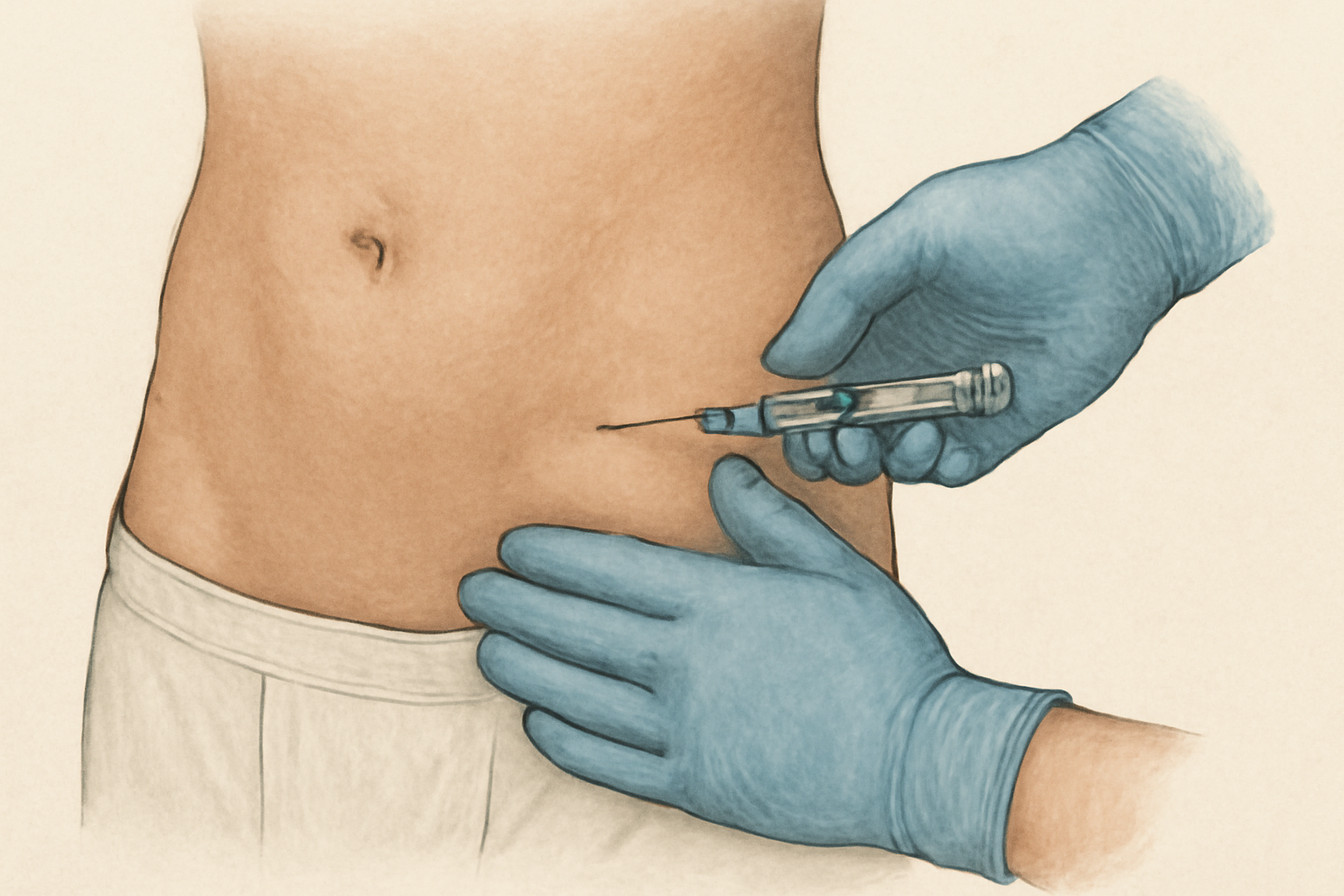What is a Genitofemoral Nerve Block?
A Genitofemoral Nerve Block is a procedure used to relieve pain in the groin, lower abdomen, upper inner thigh, or genital area, where the genitofemoral nerve supplies
sensation. The procedure involves injecting a small amount of local anaesthetic, sometimes with a steroid, around the nerve to reduce inflammation and block pain signals. It may also help confirm whether this nerve is the cause of your symptoms.

What conditions do we offer this for?
We offer genitofemoral nerve blocks for patients with:
- Genitofemoral neuralgia (burning or stabbing pain in the scrotum, groin or genital area)
- Chronic post-surgical groin pain (e.g. after hernia repair, appendectomy, or pelvic surgery)
- Pain after caesarean section or lower abdominal surgery
- Groin pain not responding to medication or physiotherapy
Why is it done?
This procedure is done to:
- Relieve neuropathic pain in the genitofemoral nerve distribution
- Help confirm the nerve as the source of pain (diagnostic value)
- Reduce the need for strong oral medications
- Improve comfort, mobility, sleep, and quality of life
- Guide further treatment, such as pulsed radiofrequency, if pain relief is significant
What does the procedure involve?
- You will lie on your back with your abdomen and groin exposed.
- The skin will be cleaned and numbed with local anaesthetic.
- Under ultrasound guidance, a fine needle is inserted near the genitofemoral nerve, which lies along the lower lumbar spine or near the inguinal ligament.
- A small amount of local anaesthetic, with or without steroid, is injected.
- The procedure takes 15–30 minutes and is performed as a day case.
Benefits
- Targeted pain relief in the groin and genital region
- Diagnostic clarity for planning further treatment
- May avoid the need for long-term medications
- Improved function, mobility, and quality of life
- Supports decisions about further options like pulsed RF
Side Effects
Very Common side effects
(may affect more than 1in 10 patients):
- Pain or bruising at the injection site
- Numbness or tingling in the groin or upper thigh
- Temporary increase in pain before improvement
Common side effects
(may affect up to 1in 10 patients):
- Local swelling or discomfort
- Mild dizziness or light-headedness
Uncommon side effects
(may affect up to 1 in 1,00 patients):
- Temporary difficulty with urination or sensation in the genital area
- Infection at the injection site
Rare side effects
(may affect up to 1 in 1,000 patients):
- Nerve injury or prolonged numbness
- Bleeding or haematoma
- Allergic reaction to anaesthetic or steroid
Aftercare Advice
- You will be monitored after the injection and usually discharged the same day.
- Avoid driving for 24 hours.
- Some numbness or tingling in the groin or thigh may persist for a few hours.
- Resume activities gradually; avoid heavy lifting or intense physical activity for 24–48 hours.
- A follow-up plan will be arranged depending on your response.
When to Seek Medical Attention
Please attend A&E immediately if you experience:
• Fever, chills, or signs of infection at the injection site
• Sudden chest pain, breathlessness, or dry cough
• New or worsening arm numbness or weakness
• Loss of bladder or bowel control
• Severe or ongoing neck pain not relieved by usual medication
